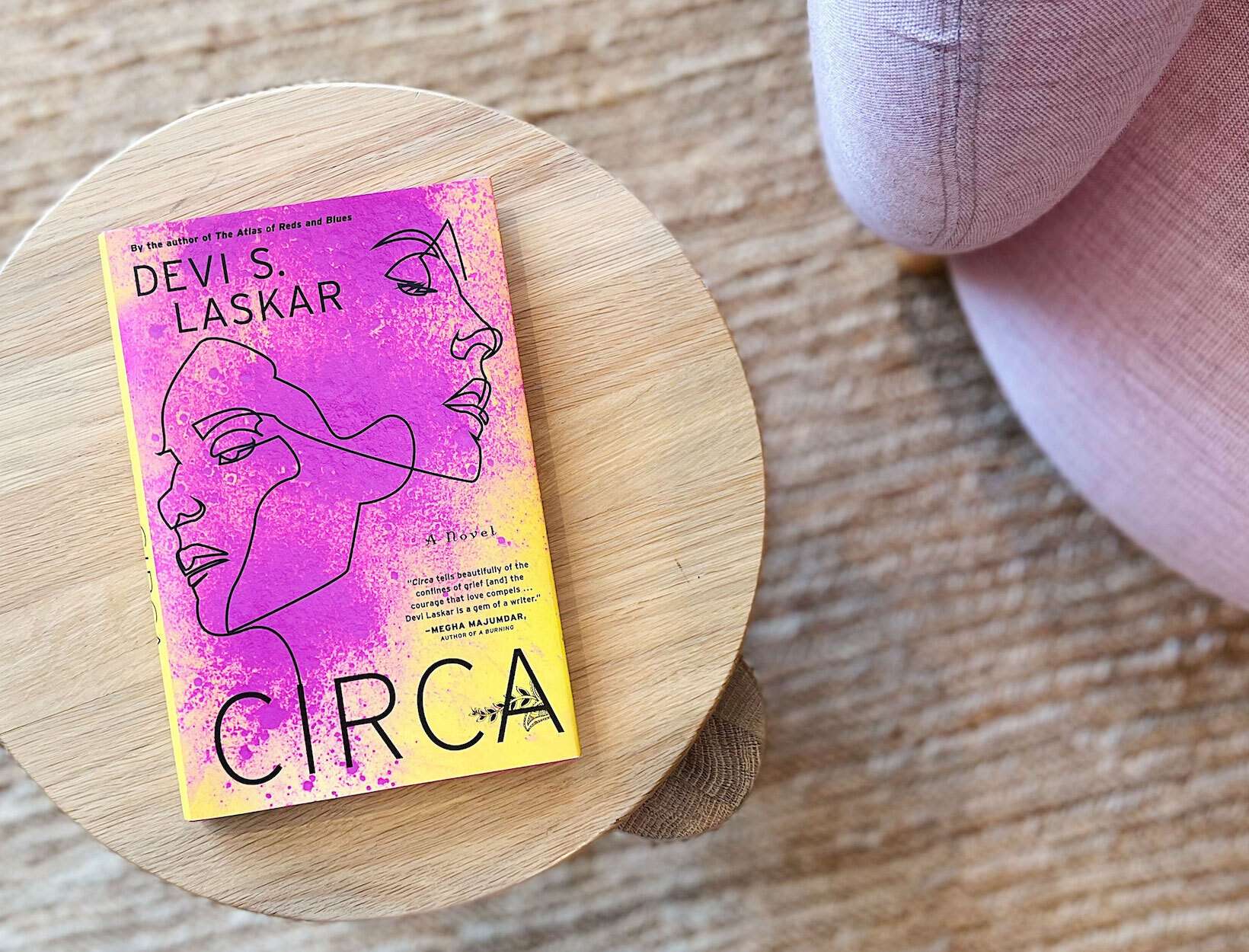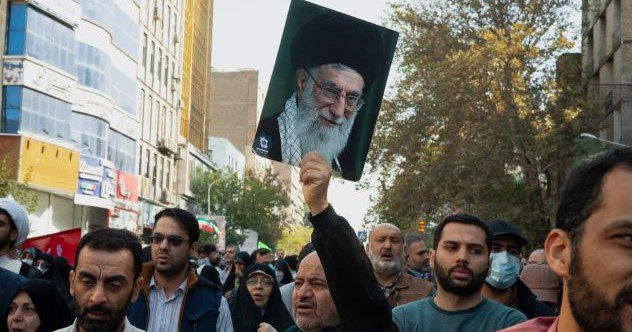[ad_1]

June Book Club Pick: Circa

When we meet Heera, she’s 17 years old, living in a suburb of Raleigh, North Carolina, with her Bengali American parents. Her best friend is Marie Grimaldi. She has a crush on Marie’s older brother, Marco, whom she meets up with after dark to paint anarchy symbols on the town’s water towers. One night, on a walk home from the Halloween carnival, their lives change in an instant. Circa follows Heera to New York City, into young adulthood, and through her on-again, off-again relationship with Marco, who reinvents himself as Crash after that night. In the excerpt below, Heera is getting ready for her wedding ceremony—an arranged marriage to another man—wondering if she will see Crash down the hall.
-
A slim, sparing coming-of-age love story, Circa explores the ways family, identity, desire, and the promise of freedom shape us. Pick up a copy and join us in goop Book Club. We’ll be chatting in our Facebook group and going live on YouTube with the author, Devi S. Laskar, on June 30 at 4 p.m. PT (7 p.m. ET).
-
 Devi S. Laskar
Devi S. Laskar
Circa
Bookshop, $26SHOP NOW
From Circa
Second hand
You know you might see Crash, before the ceremony, in the long hallway, lingering under the recess lights, leaving his station where the knives are sharpened and the stainless steel bowls reflect like mirrors, risking this latest job to catch a glimpse of you as you enter from the front foyer, a live picture bride resplendent in red and gold. So you stand very still as the aunties, the women in your parents’ spidery social web minus Krishna’s mother, who has gone to India, hover over you with more face powder, a deeper blush, and safety pins to keep the pleats of your silk sari in place.
The aunties ask, a hint of metal underneath their whisper-soft voices, “Do you want more bangles for this arm, Heera?”
Your eyes hurt when you look at them. “Yes,” you say.
The aunties ask, “Can we paint your face more?”
“Yes,” you say, closing your eyes.
The aunties ask, “Can we affix the veil?”
“Yes,” you say.
They drape it over you but the plaits of your hair do not cooperate with the red gauze threaded with gold. Anita Auntie bobby pins your plaits, her hands smoothing the braid, and you are back at the beginning of high school, the last time you rode the bus, the afternoon some boys sitting behind you put their chewed gum in your hair. Marie instructed you in pig Latin not to cry, cursed at the older boys in a low voice, and Marco leaned in to the driver as you got off the bus and complained that they were exposing themselves. Ma couldn’t get out the myriad of tiny pieces so she prepared to cut at the nape. Marie held your hand as you wept then, while Marco told Ma to wait. He ran all the way to his house, grabbed the jar of Skippy out of his mother’s cabinet, and ran back. “Try this,” he said. “I read that it works.” Ma and Marie slathered peanut butter over the gum knots; Marco entertained you with card tricks until your hair dried. And the Hubba Bubba pieces slid off in the sink when Ma washed your hair. Success.
You know Crash’s mother will be in the audience, a satisfied look on her face, congratulating herself that her son hasn’t married the one girl she finds unacceptable. The one girl who was her dead daughter’s best friend. The one girl who was with her daughter when she was fatally injured. But you also know Crash is not on good terms with his mother and father, and cannot enter the hotel as their guest. You know his only ticket to the wedding is through the double swinging doors that lead from the kitchen to the beige hallway and on to the conference room that your parents have chosen in lieu of the grand ballroom. To save money. Your parents booked the Hindu temple in Morrisville, but because of the vandalism after the Klan march last month, it is not quite finished. So this hotel in downtown Raleigh moved from second to first choice.
You find yourself alone for a moment, after the aunties successfully drape the veil, then pack up their bottles and brushes and stow them away in their rolling suitcases for another day and another Bengali bride.
You open your eyes.
The dressing room has a wall composed entirely of mirrors and you see yourself in the distance, as if you are looking at a mannequin through a department store window. The borrowed gold weighs around your neck. Your parents are renting everything but the bride. You hold your breath, hear the second hand tick on the wall clock above the door frame, and begin calculating the number of steps you will need to take to leave the hotel, hail a taxi, and run away.
But then the door opens behind you and your mother enters, holding something minute on the tip of her finger.
You exhale. It is the sound of the wind combing through the trees, it is almost a whistle.
Your mother walks around and you see her through the mirror. She reaches up to your forehead and you feel something sticking in place just between the eyes.
“Go see, Heera,” your mother says. “Promila Auntie brought it back from India. It matches.”
A gold-flecked bindi.
A third eye.
Sightless.
Your own painted face is unrecognizable in the wall of mirrors, and the smile your mother wears is just as unrecognizable, especially with all of the heavy makeup covering her perpetual fatigue. You turn around and look past your mother to the windows and envy the tree branches and the leaves, how they soak up the sun and stay warm. You shiver as your thoughts inevitably return to Crash.
You know you shouldn’t ask.
You know Ma isn’t going to tolerate your disobedience now, just as the wedding is to commence. You are alone for the first time in days, your mother smiling for the first time in nearly a month. You hear the crowd coming in, and people talking and milling about. Someone’s young son or daughter plays a few measures of “Blue Moon” on the grand piano that is in the foyer under the oversized chandelier, and then the music stops abruptly. You picture Crash as the bridegroom, for just a moment, a silk kurta shirt covering the tattoos on his chest, before you remember him at eighteen, the last night of the water tower in Apex, a rope tied around his waist and a paintbrush in his hand, as he swung back and forth and painted the anarchy symbol in red, big enough for people miles away to see. A scarlet letter to brand the town the water tower serviced. Whatever the A stood for in the Hawthorne novel or in society, in your life it ended up representing one word. Absence.
“I think he’s in the kitchen working today,” you say. “Can I go see him?”
The last time you asked your mother for permission to visit Crash was just after Marie’s funeral, he curly-haired, unshaven, and blind with grief. The images you recall every time you have thought of him after Marie’s death are distorted, like a sooty film over the skin.
Incredulity gallops across Ma’s face, and it is the same look as when you first arrived to prepare for the wedding, when you stepped through the front door, suitcase in your hand. You’d been away at the university, in New York; maybe she didn’t believe you’d return once the monthlong summer program was completed. Still the tuition for the coming year had not been paid, but Baba said he was working on a plan.
Crash had been at the airport baggage claim, leaning up against a pillar, waiting for you to walk through the terminal and fetch your belongings. He’d lit a cigarette, one hand cupped over the instant flame of the lighter. His stance and leather jacket reminded you of a raw James Dean. Somehow he had known you were coming home that day. You also knew your father would be circling the airport, unwilling to pay for parking, listening to the understated tones of the announcer on public radio. So you had been alone when you saw Crash by the baggage carousel, a package in his hand.
“How are you here?” you’d asked, standing before him, your heart filling the cavernous room like the smoke coming out of his mouth. You swallowed all of the snide remarks that were bubbling in your throat, about Katrina.
He showed up, after all.
Alone.
Crash dropped his cigarette, smashed it with the heel of his shoe, and gently blew smoke away from your face. “I had to be the first to welcome you home, Dia,” he said as he hugged you. His kiss was chaste and dry on your cheek. He handed you the package, wrapped in plain brown paper, then pulled your bag off the rolling belt and laid it at your feet.
You tried to return the parcel but he said it was for you. Something to open later.
You unzipped your backpack and carefully put it away.
“Look me up sometime,” he said. “I’m in the usual places.” He laughed a little.
“Let’s have a drink now,” you’d suggested.
He smiled. “Your old man has circled the terminal six times—you need to go. Just come see me, before you go through with this.”
You wanted to open the package the first night you were home, right after your parents had cleared the dinner dishes. You knew you had the courage at that moment, the curiosity. But you heard your father walk heavily up the staircase calling your name, and you buried the present in your closet with some papers from high school you wanted to keep.
You tried so hard to open the package, the next day, the day after that. Every day, as your mother kept you busy with preparations, as your father kept watch over you (“Capital of Mozambique? Capital of New Zealand?”) even as you trotted to the end of the driveway to fetch the News & Observer or check the mailbox.
But the courage inside you ebbed and you set it aside.
Earlier today, on the morning of your wedding, you woke before dawn and took the package out from your closet. The house was quiet and dark and the world on the other side of your bedroom window matched. You turned on your study light and sat on the carpet, ripped the brown paper off and found last year’s yearbook underneath, the familiar Spartans helmet in crimson and navy blue. The Grimaldis had paid extra, and there underneath the year was Marie’s name etched in block letters. You blinked back tears as you cracked open the spine. On the second page, Crash had written you a note and paper clipped it to the table of the contents: D — She would have wanted you to have this. Look on p. 60 — C.
You wanted so much to take the day and pore over every page, but you knew you couldn’t, and your breathing became labored and slow. You ran across the sports teams, and stopped on swim & dive, Katrina’s eyes piercing you from the page along with April Stewart’s, and one of the Kaminski brothers; Mr. Cleveland with his arms crossed, in a jacket marked coach. You thought back to the tryouts years before, how Marie and Marco declined Mr. Cleveland’s invitation to join because your parents wouldn’t let you compete. “All for one and one for all,” Marco had said.
You heard Baba’s alarm on the nightstand and you exhaled. You turned to the page Crash wanted you to see, and there, in black and white, was a candid shot of you and Marie at the carnival, Dorothy and the Scarecrow, arm in arm, mouths open in song.
Finally your mother answers. “Now, before you see your new husband and marry him in front of all of my friends, you want to enter the hotel kitchen in your wedding dress to meet a dishwasher, Heera?”
You wonder how she knows Crash works as a dishwasher.
You could stay silent, you should, what with all of your bangles sparkling on your arms, earrings from your grandfather weighing down your lobes—the red silk sari heavy on your body, a tiny tiara to keep the wedding veil in place. You could remain a doll—after you marry you won’t have the luxury of visiting your friends, even the estranged ones, the ones you couldn’t live without, the one who once saved your life. But your mother doesn’t really know.
What Ma knows about Marco’s family is the mathematics of what everyone in town thought they knew, how Marco’s father left, how Marco’s mother seemed to carry through the years of Marco’s antics and Marie’s death with the aplomb of a woman watching Sunday theater from the balcony, binoculars in one hand and a glass of cognac in another; how she worked after Marie’s death, and went into town and bought a rack of black pantsuits, mannish blouses with big collars, and lipstick, how she spent every Tuesday at the salon, and then every other day of the week selling houses, one or two at a time, to strangers who wanted to buy into the charm of their small corner of the Raleigh community, wide lawns, smoke from the backyard barbeques, and little girls on pink bicycles pedaling into the woods. You know Ma gossiped with the aunties at the Indian dinner parties on the weekends—but all the talk flying through the air wasn’t going to bring Marie back from the dead.
Ma’s lips compress into a flat line.
You say, “I have to say goodbye to him.” Your voice firm and clear, unlike your appearance as a picture bride, who is admired but does not speak.
“You have had years to say goodbye, Heera,” Ma says, her eyes averted from the window and the mirrored wall. “You have had the last month since you came home.”
“I wasn’t ready,” you say.
Ma opens her mouth to speak but closes it and swallows a few times; and opens it again.
The music of the ceremony begins, the mournful shehnai, and the crowd’s din diminishes and then is silenced as if the guests have left and the room stands empty.
“It’s too late,” Ma says.
From Circa by Devi S. Laskar, published by Mariner Books, an imprint of HarperCollins. Copyright (c) 2022 by Devi S. Laskar.
We hope you enjoy the book recommended here. Our goal is to suggest only things we love and think you might, as well. We also like transparency, so, full disclosure: We may collect a share of sales or other compensation if you purchase through the external links on this page.
[ad_2]
Source link



